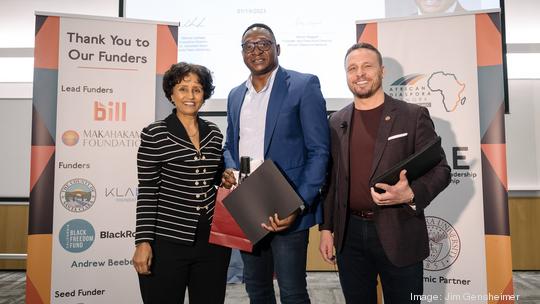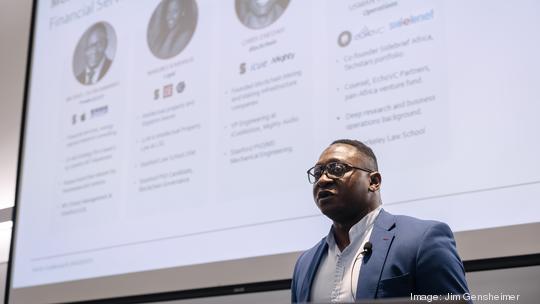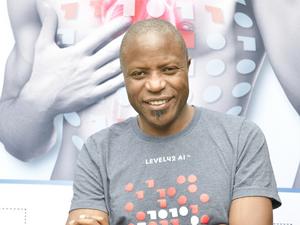
When Michael Olorunninwo moved to the U.S. for an MBA program at Stanford, he planned on tapping into his savings for living expenses. Transferring the money from Nigeria turned out to be not only cumbersome but costly.
Before he was able to complete the transaction, the Nigerian naira lost half of its value, he told me, and due to exchange rates, so did his savings, which previously would have been worth at least $30,000 in U.S. dollars.
The experience was eye-opening.
And after spending time working as a consultant for customers in the finance industry, Olorunninwo realized that businesses in emerging markets had similar challenges when it came to cross-border trade and payments.
"African countries actually do not trade with each other that much. … Look at Latin America, same thing," Olorunninwo told me. "How do we actually build a platform that makes emerging markets and businesses more competitive with trade across borders?"
So in 2021, he co-founded GradientFI, a decentralized payments platform for businesses like e-commerce and trade finance in emerging markets. The San Francisco company standardizes transactions and attempts to make them faster and cheaper by processing everything with stablecoins that are tied to local fiat currencies and backed by an equal value of reserves kept in U.S. dollars.
"We want to build a regulatory-friendly, business-friendly product," Olorunninwo said.

Unlike many web3 projects, GradientFI isn't trying to subvert traditional financial institutions or undermine fiat currency. Rather, Olorunninwo sees banks as important partners in facilitating its blockchain-powered transactions.
When the platform launches later this year, GraidentFI will allow businesses to make cross-border payments with its U.S. dollar-backed stablecoin, which will be supported with an equal value in cash reserves, Olorunninwo told me.
GradientFI will launch in 10 to 15 countries over the next year starting with Nigeria and the U.S. with more countries in Africa as well as Mexico, Canada and Europe to follow.
In the U.S., we take for granted how quickly money can be processed whether by bank transfer or other popular services like Square, PayPal and Venmo. Big tech companies like Google, Apple and Amazon also offer business payment processing services.
But in Africa, financial transactions across borders can be slow and costly.
To illustrate this point, he gave the example of Ghana and Nigeria. Even though the countries are only about one hour apart by plane, a simple payment between businesses in the two countries can take days and increase costs up to 25% depending on fees, currency volatility and other issues.
GradientFI's decentralized platform will cut down that processing time to mere minutes and stabilize costs to just one percent of a transaction, Olorunninwo said, and the company has already processed $6.6 million worth of transactions.
Olorunninwo pitched his business on Thursday during the second annual Accelerating Black Leadership and Entrepreneurship, or ABLE, pitch day and graduation ceremony.
The mentorship program was organized by the African Diaspora Network, an organization founded by executive director Almaz Negash in 2010 to support Black and African entrepreneurs in the U.S. It kicked off the program in 2021.
Twelve founders participated this year (though only 11 completed the program) and they each received a $10,000 cash grant.
Olorunninwo had been involved with the African Diaspora Network for several years before joining its mentorship program for Black entrepreneurs.
"Coming to the U.S., I thought I was going to have more opportunities but realized there are structures that need to be improved. This program's job is to highlight that," Olorunninwo said, and also "be part of the solution in terms of how can we provide access to minority founders… not just because it's the right thing to do, but there's potential to create economic value."








